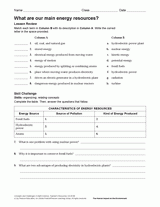The world's first successful commercial jetliner
The Boeing 707 wasn't the world's first commercial jetliner; that distinction belongs to the ill-fated British deHavilland Comet. But the 707 was the first successful one, setting the stage for Boeing's domination of the multi-billion dollar world airliner market for decades to come.
A Classic Design
The 707's basic design and performance have hardly been improved upon in half a century. The latest state-of-the-art Airbus A340, for example, looks like an enlarged carbon copy of the 707, and flies at about the same speed and altitude. Virtually every airliner flying today can trace its design roots back to the seminal Boeing.
The 707 began as a military design study for a jet-powered refueling tanker. The Air Force wasn't interested, so Boeing bravely invested $16 million—a lot of money in the 1950s—to build a prototype aircraft that could be spun off into either a tanker or an airliner.
Drawing on the design of the B-47 and B-52 bombers, the Model 367-80 prototype had 35-degree swept wings and four Pratt & Whitney JT3 jet engines mounted on wing pylons. The "Dash-80" first flew in 1954, and put up some impressive performance numbers. The Air Force quickly changed its mind and ordered 29 KC-135 jet tankers based on it.
Pan Am Led the Way
The airlines were a bit harder to convince. So Boeing agreed to widen the fuselage a couple of inches to allow six-abreast seating. Then, on a demonstration flight of the Dash 80 in front of potential airline buyers in 1955, test pilot Tex Johnston performed two impromptu low-level barrel rolls, to the horror of watching Boeing executives and the delight of the airline brass. Two months later, Pan Am ordered its first 707, and other airlines quickly followed suit.
The modern era of transportation dawned on 27 October, 1958, when the first Pan Am 707 took off from New York for Paris. Compared to the propeller-driven airliners of the day, the flight was vastly smoother, quieter (from the inside, anyway), and took barely half the time. There was no going back. The 707, in various versions, was soon flying for most of the world's leading airlines.
The 707 was built in many variations, including a short-range version called the 720. The biggest design improvement was the switch to quieter, more fuel-efficient JT3D turbofan engines in 1961.
A total of 725 airline 707s were built, the last in 1978. Production of various military versions continued sporadically until 1994. Perhaps the finest 707 still flying is owned by movie star John Travolta, a pilot and lifelong aviation buff. The meticulously restored 707-138B, built in 1964 for the Australian airline Qantas, is still alive in its original red-and-white Qantas colors.







